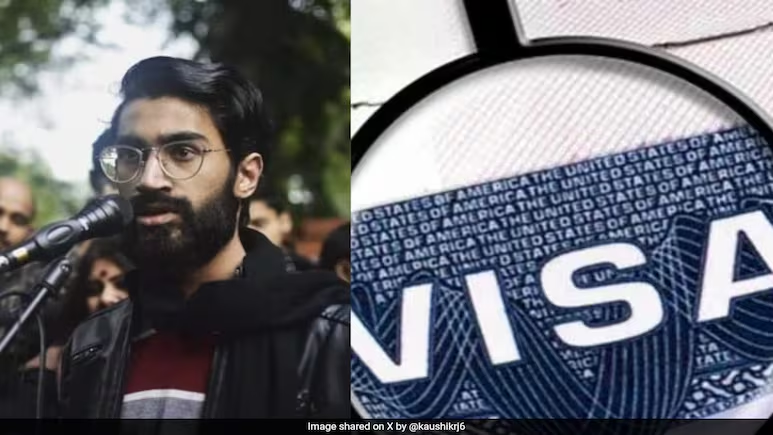Kaushik Raj, a 27-year-old journalist from Delhi, was preparing to begin a new chapter at Columbia University with a $100,000 (approximately ₹89 lakh) scholarship to study data journalism. But his dream was abruptly derailed when the United States denied his student visa, a decision he believes was influenced by the scrutiny of his social media activity.
Raj had completed all the formalities required for his F-1 student visa, including the interview, and was set to start his semester in August. But around that time, he received a letter from the U.S. Embassy in New Delhi informing him that his application had been rejected. The official reason cited was his alleged failure to demonstrate “sufficient ties” to India that would compel him to return home after his studies.
The letter did not mention social media, but Raj told The Washington Post he is convinced it played a role. “It was clearly because they had gone through my social media,” he said. Although he wasn’t very active online and avoided sharing personal opinions on sensitive global issues like Israel’s war in Gaza, his four-year journalistic career often focused on hate crimes — a topic reflected in his posts.
Raj’s experience is not isolated. Three other Indian students interviewed by The Washington Post described similar rejections despite completing every stage of the application process. Each said they were ultimately denied after U.S. officials conducted social media vetting, with authorities claiming the applicants lacked strong enough ties to India, even though all had lived there their entire lives.
In June, the U.S. government expanded its visa screening procedures, requiring all applicants for F, M, or J visas — covering students and exchange visitors — to make their social media accounts public to facilitate vetting. The White House has defended the policy as essential for national security, with Deputy Press Secretary Anna Kelly saying it helps identify individuals who might pose threats or seek to undermine U.S. foreign policy interests.
The crackdown has had a measurable impact. According to data from the International Trade Commission, the United States issued 313,138 student visas in August — traditionally the busiest month for U.S. universities — a drop of 19.1 per cent compared to the same month in 2024. The decline has hit Indian students particularly hard. Visa issuance for India fell by 44.5 per cent year over year, pushing China back into the top spot as the leading source of international students in the U.S.
Raj, who had pinned his hopes on Columbia, says he will now turn his attention to the United Kingdom. “I will apply to the UK now,” he told the newspaper.
His case highlights the growing influence of social media vetting on U.S. immigration decisions — and the rising uncertainty faced by international students navigating an increasingly stringent visa system.


